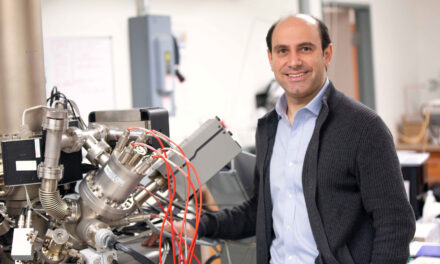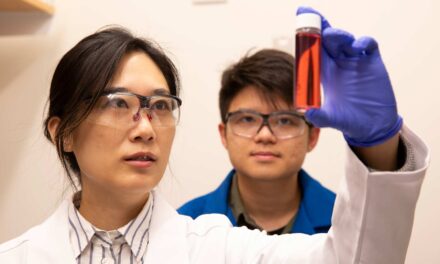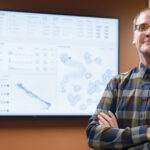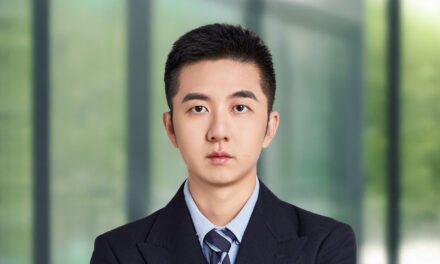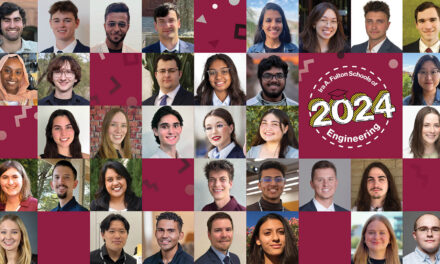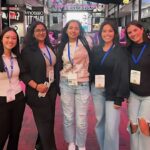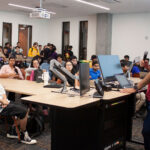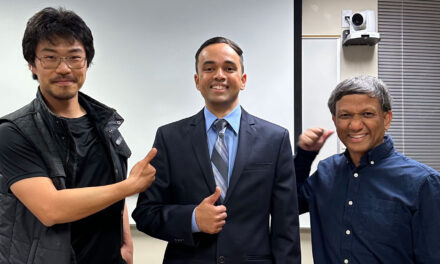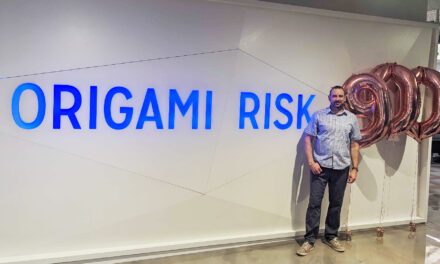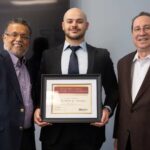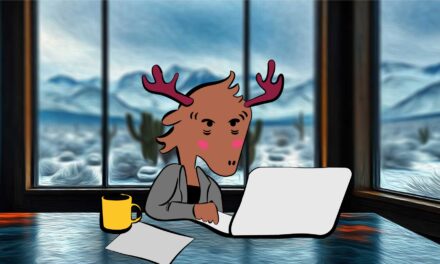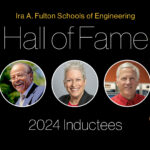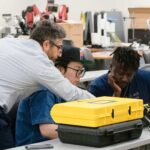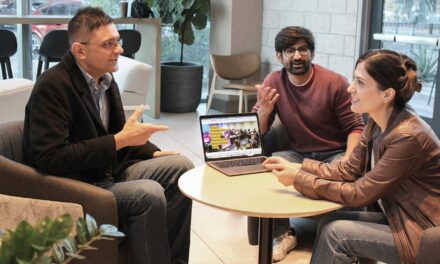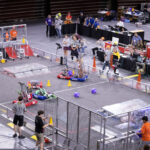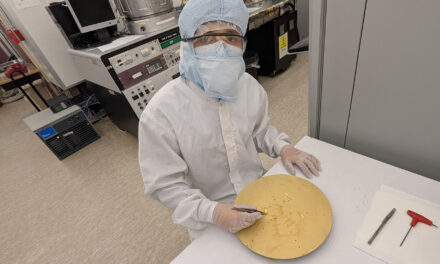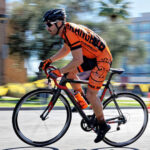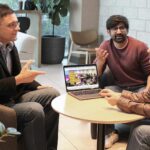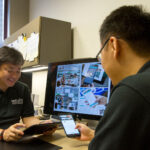
ASU receives NSF funding to include more in engineering, advance first-generation college student success
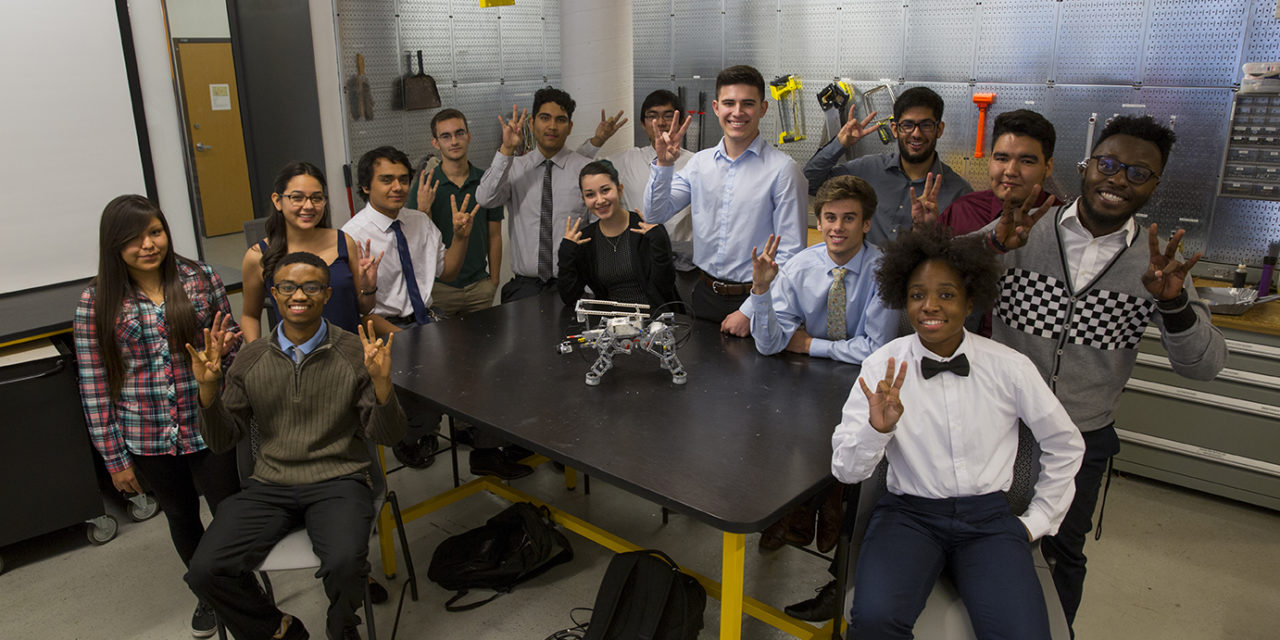
Above: A group of first-generation students pose for a photo during their FSE-100 class. Enrollment of first generation-students has steadily increased in recent years, but retainment remains an issue, with first-gen students 20 percent less likely to complete their degrees in engineering compared to students whose parents attained degrees. But thanks to a recent investment by the National Science Foundation, Arizona State University has embarked on an ambitious project to develop mechanisms, systems and programs to increase persistence of these students as well as cast a wider net to attract underrepresented groups to engineering and STEM careers. Photo by Jessica Hochreiter/ASU
Since 2011, enrollment of first-generation college students in Arizona State University’s Ira A. Fulton Schools of Engineering has grown more than 150 percent, bringing new ideas, perspectives and experiences into engineering education.
However, these laudable advances in enrollment are tempered by the significant drop off in persistence, especially compared to students whose parents have attained bachelor’s degrees. A study examining persistence rates of the class of 2011 found that first-generation students were 20 percent less likely to complete their bachelor’s in engineering than their continuing generation peers.
With the support of a two-year, $300,000 grant from the National Science Foundation, the Fulton Schools is looking to change that pattern by developing and adapting a suite of support systems and introductory programs to not only ensure first-generation student success, but broaden participation of underrepresented groups in engineering.
Fulton Schools Dean and Professor Kyle Squires serves as the principal investigator on the effort, called Engineers from Day One: Fostering Engineering Identity and Support Structures to Promote Entry and Persistence in Engineering for First-Generation Students. Co-PIs include Vice President of Industry Partnerships at Maricopa Community Colleges Maria Reyes, Director of the Fulton Schools Career Center Robin Hammond, Vice Dean of Academic and Student Affairs and Professor Jim Collofello and Tooker Professor and Assistant Dean of Engineering Education Tirupalavanam Ganesh.
“Inclusion is inherent to the DNA of ASU, and we’re very pleased to receive support from the National Science Foundation to continue the important work of drawing engineers from all backgrounds,” says Squires. “Diversity not only builds a healthy, vibrant community, but is an essential ingredient for innovative solutions and impactful change.”
ASU is one of 27 institutions to receive such an award — part of the Inclusion across the Nation of Communities of Learners of Underrepresented Discoverers in Engineering and Science, known as the INCLUDES program — alongside Boston University, the University of Pittsburgh, Clemson University, the Georgia Department of Education and others. This is the second year of INCLUDES awards, designated one of the “10 Big Ideas for Future NSF Investments.”
ASU is not embarking on this ambitious program alone. Engineers from Day One involves a range of partners, including the Maricopa Community Colleges, K-12 school districts of Chandler, Mesa, Phoenix, Tempe, and Tolleson as well as industry partners Honeywell, Intel and Texas Instruments. The Helios Education Foundation, a philanthropic organization committed to aiding students from underserved populations in Arizona and Florida complete post-secondary education, will serve an advisory role.
“Maricopa Community Colleges are built on a foundation of providing access to higher education for diverse students and we are proud of this alliance with Arizona State University’s Ira A. Fulton Schools of Engineering to expand our efforts to attract more students to engineering programs,” says Maria Harper-Marinick, Chancellor of the Maricopa Community Colleges. “We are committed to developing institutionalized responses that will support entry and persistence in engineering of first generation students, women, underrepresented ethnic minorities, and those with socio-economic need.”
Engineers from Day One will involve 500 high school students, 100 community college students working toward associate’s degrees and 200 ASU students enrolled in a four-year engineering program. The project will focus on developing engineering awareness and an identity tied to the discipline, as well as contextualizing engineering’s personal and social relevance.
“What if students don’t even know what an engineer does? What if you don’t know that people like you are engineers, and you too can aspire to become one?” asks Ganesh. “You’ve never even thought about it or explored engineering, and if you have, it doesn’t have any connection to people like you or people in your neighborhood. How do you make that change?”
Engineers from Day One seeks to catalyze that change through four different programs: Hermanas: Diseña Tu Futuro Conference, Young Engineers Shape the World, Engineering Projects in Community Service and Engineering Futures. Each program is designed to develop awareness and interest in engineering, as well as building systems that can respond to the unique needs of first-generation students at various educational junctures.
Hermanas is a Maricopa Community Colleges event that promotes STEM educational pathways to young women historically underrepresented in these fields. The project aims to adapt the long-running conference from a one-day event into a series of experiences to encourage Latinas to explore attending college and financial aid while breaking down stereotypes about STEM careers. ASU will provide mentors for the program, which plans to serve 100 high school students a year.
Young Engineers Shape the World, or YESW, is newly developed program designed to serve 150 high school girls over the course of two years. Eight ASU undergraduate mentors will guide high schoolers through planned exploratory activities, stereotype confrontation, industry mentorship and ASU site visits for 60 contact hours per year.
“Basically, it’s a way to get high school women to explore engineering by interacting with undergraduate students in an informal setting,” says Ganesh. “By the end of it, our desired outcome is that students make the choice to enter engineering, because they’ve explored the various majors we offer and have a better idea what those majors could lead to.”
Engineering Projects in Community Service, a popular social engagement program within ASU and area high schools, will be further expanded to more high schools as well as Maricopa County community colleges.
“It’s a way to show the social relevance of engineering, because you’re solving problems for the greater good,” says Ganesh. “How can you serve your community, be it your school, your neighborhood or even the global community?”
EPICS pairs student teams with local partners in need of an engineering design solution and is already supported by ASU in the Chandler, Mesa, Phoenix and Tolleson school districts. It will expand to Tempe as well as Maricopa Community Colleges, with the support of ASU undergraduate and community college mentors.
EPICS will be integrated into introductory engineering courses in community colleges, designed to present engineering as a socially relevant and beneficial discipline from the start.
“If we could show the social relevance in those early courses, it could possibly drive some students to transfer to ASU and continue their engineering education,” says Ganesh.
However, simply opening up engineering pathways and aiding the pursuit of a bachelor’s degree is only part of the equation. Once underserved, first-generation students arrive at four-year university, aforementioned persistence rates steadily decline.
To combat this, the fourth program, Engineering Futures, is specifically designed to support first-gen students navigating the university. Through the creation of student cohorts, the program constructs support systems with first-generation junior and senior counselors aiding in the development of engineering identity as well retention advisors to monitor progress.
“Inclusion and access are the two hallmarks of what ASU does,” says Ganesh. “We pride ourselves on how many students we include and how we help them be successful with high-quality education. But it’s not enough to include them, we also have to help them become successful. This is a small investment to test out these ideas on how we can build supportive networks and resources.”
Through advancing the success and persistence of first-generation students, researchers engaged in the study hope to create a model for use elsewhere. The combined effort of the Fulton Schools, Maricopa Community Colleges, partnered K-12 school districts, industry collaborators and the Helios Foundation could serve as a resource for the expansion of the programs, systems and mechanisms of Engineers from Day One to include individuals from all walks of life in engineering.
This material is based upon work supported by the National Science Foundation under Grant No. 1744539. Any opinions, findings, and conclusions or recommendations expressed in this material are those of the author(s) and do not necessarily reflect the views of the National Science Foundation.


